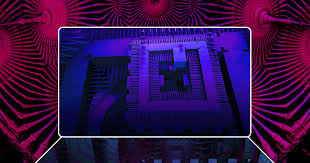
Breaking News
 The Silver Price Signal Everyone Is Missing | Mike Maloney & Alan Hibbard
The Silver Price Signal Everyone Is Missing | Mike Maloney & Alan Hibbard
 House Democrat introduces impeachment articles against RFK Jr
House Democrat introduces impeachment articles against RFK Jr
 Home sellers are giving up at 'unusually high rate,' says new Realtor report
Home sellers are giving up at 'unusually high rate,' says new Realtor report
 Gen X is ungovernable. Forged by childhood experiences, freedom was intergrated into our DNA.
Gen X is ungovernable. Forged by childhood experiences, freedom was intergrated into our DNA.
Top Tech News
 Build a Greenhouse HEATER that Lasts 10-15 DAYS!
Build a Greenhouse HEATER that Lasts 10-15 DAYS!
 Look at the genius idea he came up with using this tank that nobody wanted
Look at the genius idea he came up with using this tank that nobody wanted
 Latest Comet 3I Atlas Anomolies Like the Impossible 600,000 Mile Long Sunward Tail
Latest Comet 3I Atlas Anomolies Like the Impossible 600,000 Mile Long Sunward Tail
 Tesla Just Opened Its Biggest Supercharger Station Ever--And It's Powered By Solar And Batteries
Tesla Just Opened Its Biggest Supercharger Station Ever--And It's Powered By Solar And Batteries
 Your body already knows how to regrow limbs. We just haven't figured out how to turn it on yet.
Your body already knows how to regrow limbs. We just haven't figured out how to turn it on yet.
 We've wiretapped the gut-brain hotline to decode signals driving disease
We've wiretapped the gut-brain hotline to decode signals driving disease
 3D-printable concrete alternative hardens in three days, not four weeks
3D-printable concrete alternative hardens in three days, not four weeks
 Could satellite-beaming planes and airships make SpaceX's Starlink obsolete?
Could satellite-beaming planes and airships make SpaceX's Starlink obsolete?
Quantum Circuits Opens Lab for Modular Quantum Computers

QCI's unique software platform harnesses the power of our quantum hardware. We are building a full stack of flexible software to run novel and complex algorithms, exploiting the full potential of quantum computation.
Delivering Quantum as a Service.
QCI opened its New Haven development and testing facility for quantum computing.
The facility includes 6,000 square feet of state-of-the-art laboratories and in-house manufacturing. It will house more than 20 scientists and engineers.
Yale University researchers have demonstrated one of the key steps in building the architecture for modular quantum computers: the "teleportation" of a quantum gate between two qubits, on demand.
The key principle behind this new work is quantum teleportation, a unique feature of quantum mechanics that has previously been used to transmit unknown quantum states between two parties without physically sending the state itself. Using a theoretical protocol developed in the 1990s, Yale researchers experimentally demonstrated a quantum operation, or "gate," without relying on any direct interaction. Gates are necessary for quantum computation that relies on networks of separate quantum systems — an architecture that many researchers say can offset the errors that are inherent in quantum computing processors.

 First totally synthetic human brain model has been realized
First totally synthetic human brain model has been realized Mach-23 potato gun to shoot satellites into space
Mach-23 potato gun to shoot satellites into space

